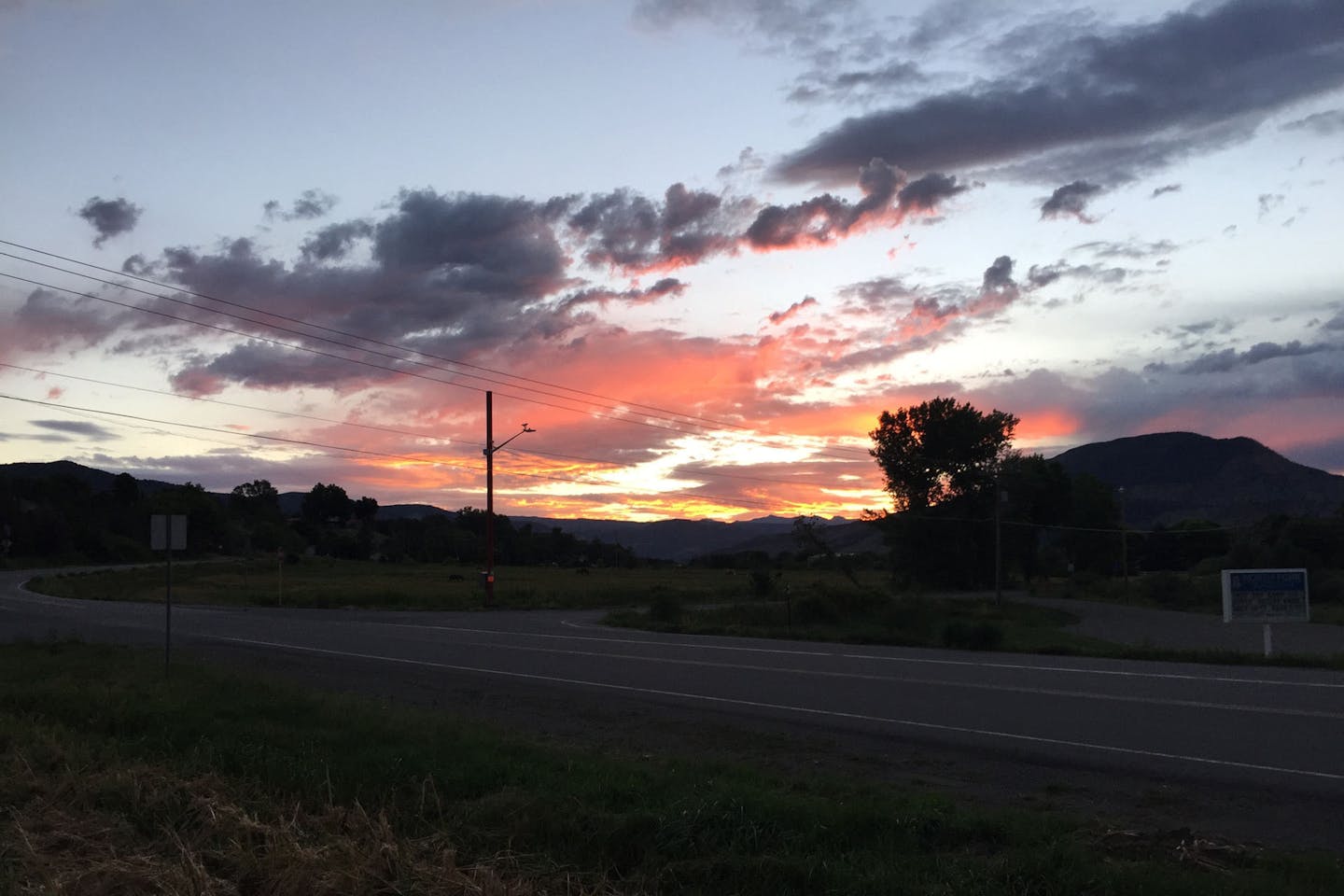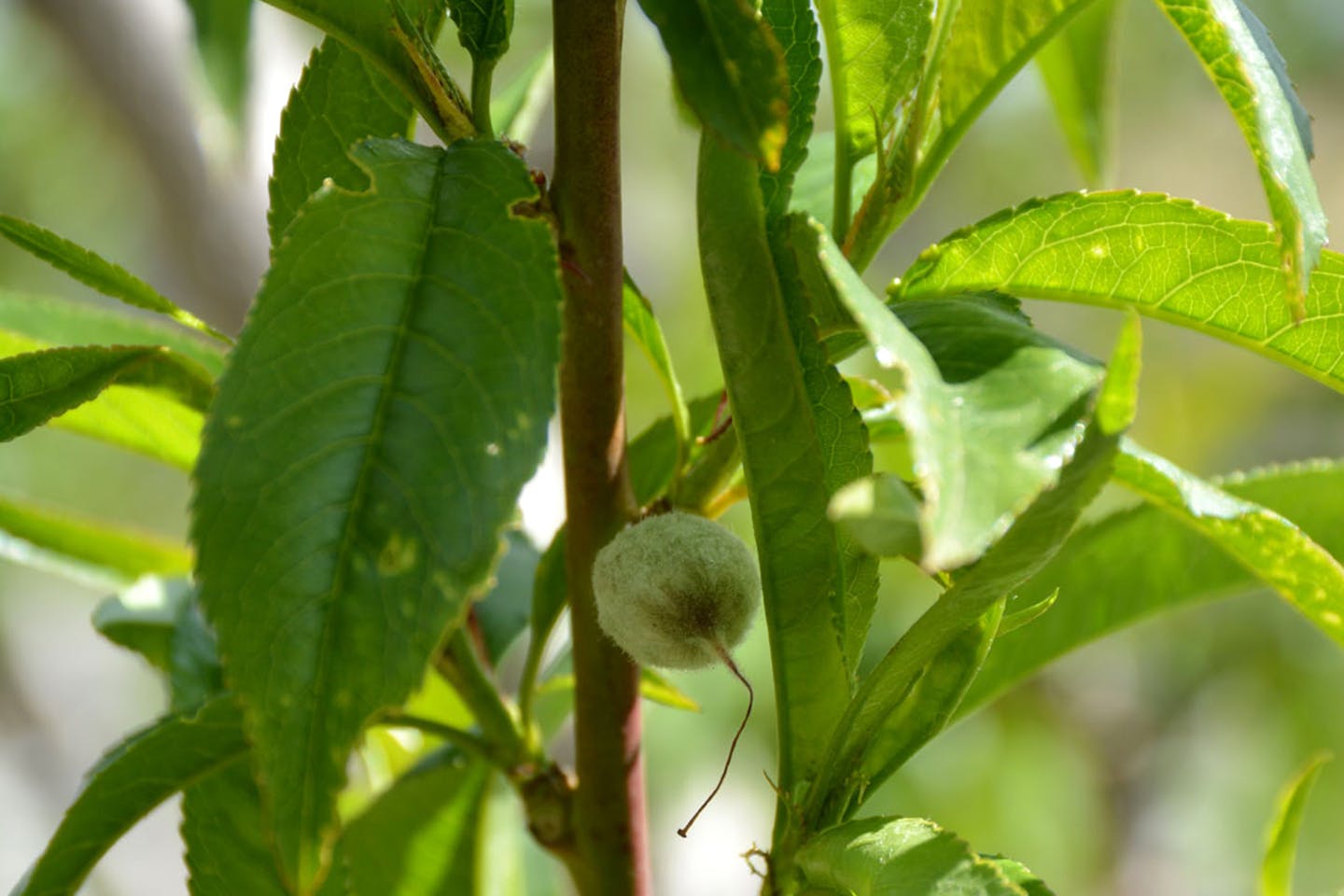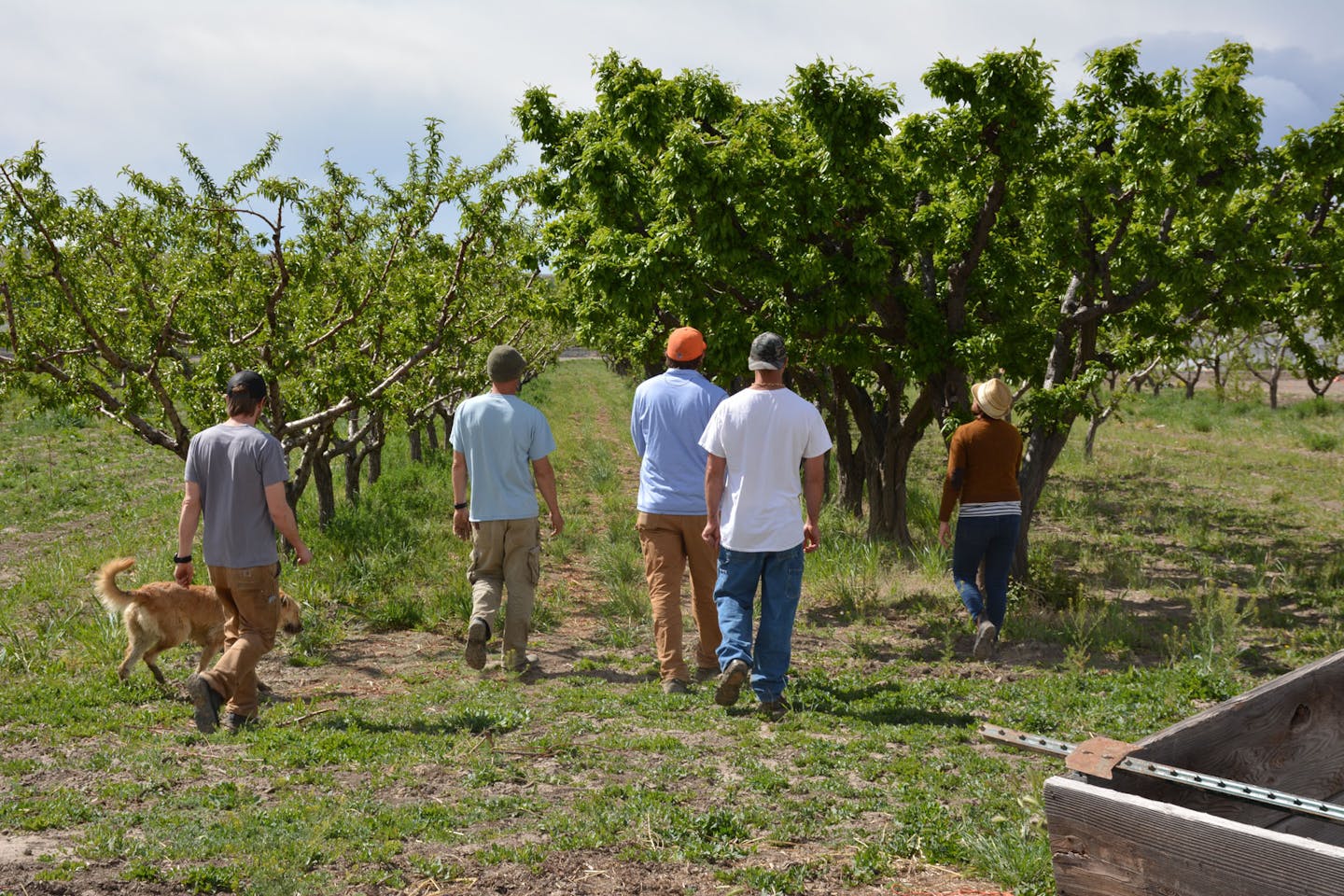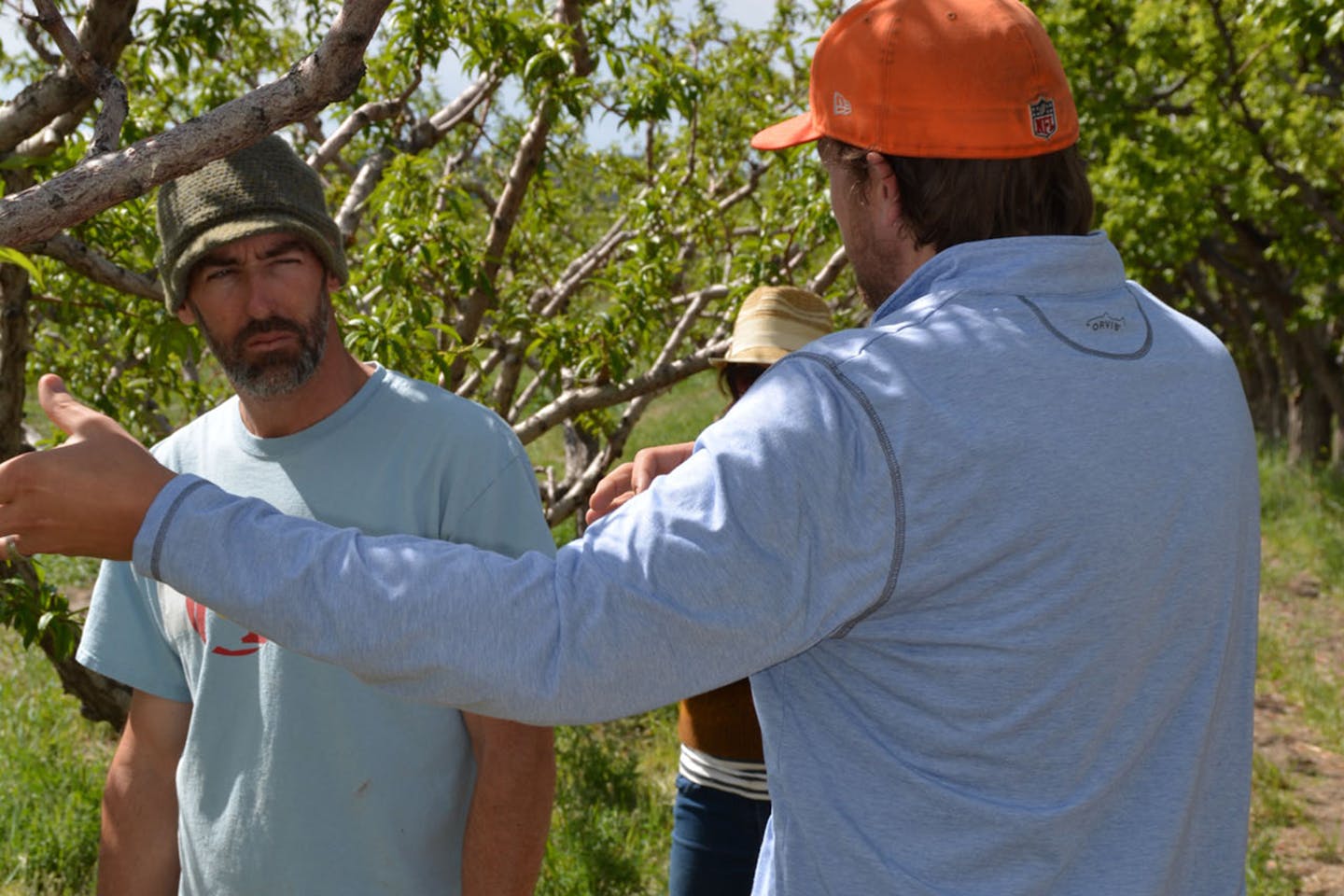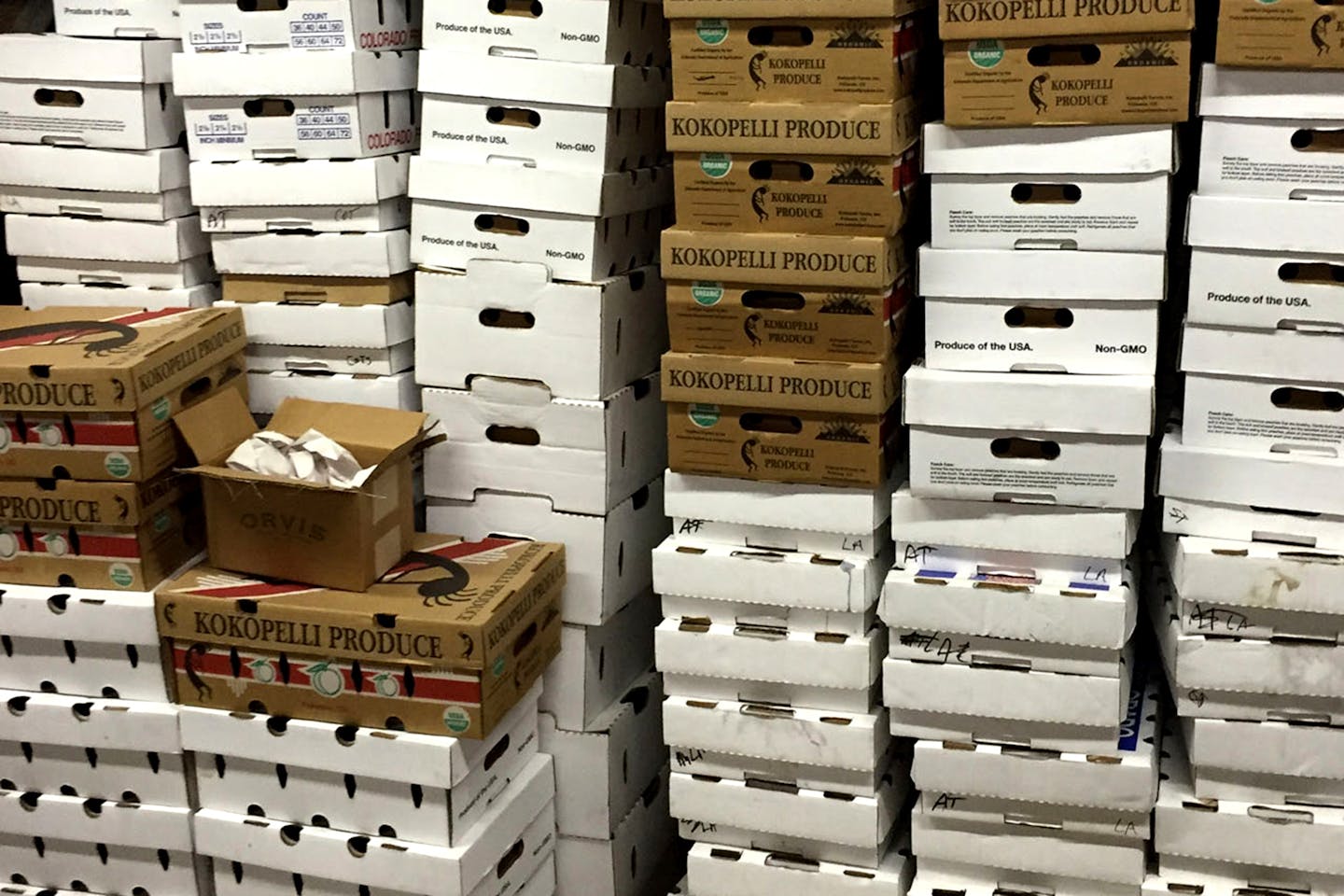It’s no big secret we here at Casey Brewing and Blending love using local, whole Colorado fruit. We don’t use puree or concentrates. Just whole fruit and nectarines are one of our favorites.
Nectarines are technically peaches, just with a recessive gene that prohibits the fruit from growing the fuzz that you see on peaches. But for us, they’re actually a bit more different and are actually becoming harder to find.
We get our organic nectarines from in and around Palisade here on the western slope of Colorado. Palisade is world renown for its peaches. Peach production outweighs nectarines over 30 to 1. Every year farmers are ripping out nectarine trees to plant more peach trees since peaches are what sells the easiest. In fact, during the 1980’s nectarines were actually outlawed in Palisade since they were susceptible to diseases that would risk damaging peaches.
Nectarines are usually smaller than Palisade’s famous peaches, which can sometimes weigh over a pound! But big peaches don’t always mean big flavor. If a farmer irrigates their trees just before picking, the peaches absorb the water and give a false sense of size that doesn’t necessarily equate to flavor. Nectarines also seem to bruise more easily and just plain don’t look as appealing as a picturesque peach. Add all these factors together and you’ll see why peaches get so much more shelf space in the summer at grocery stores.
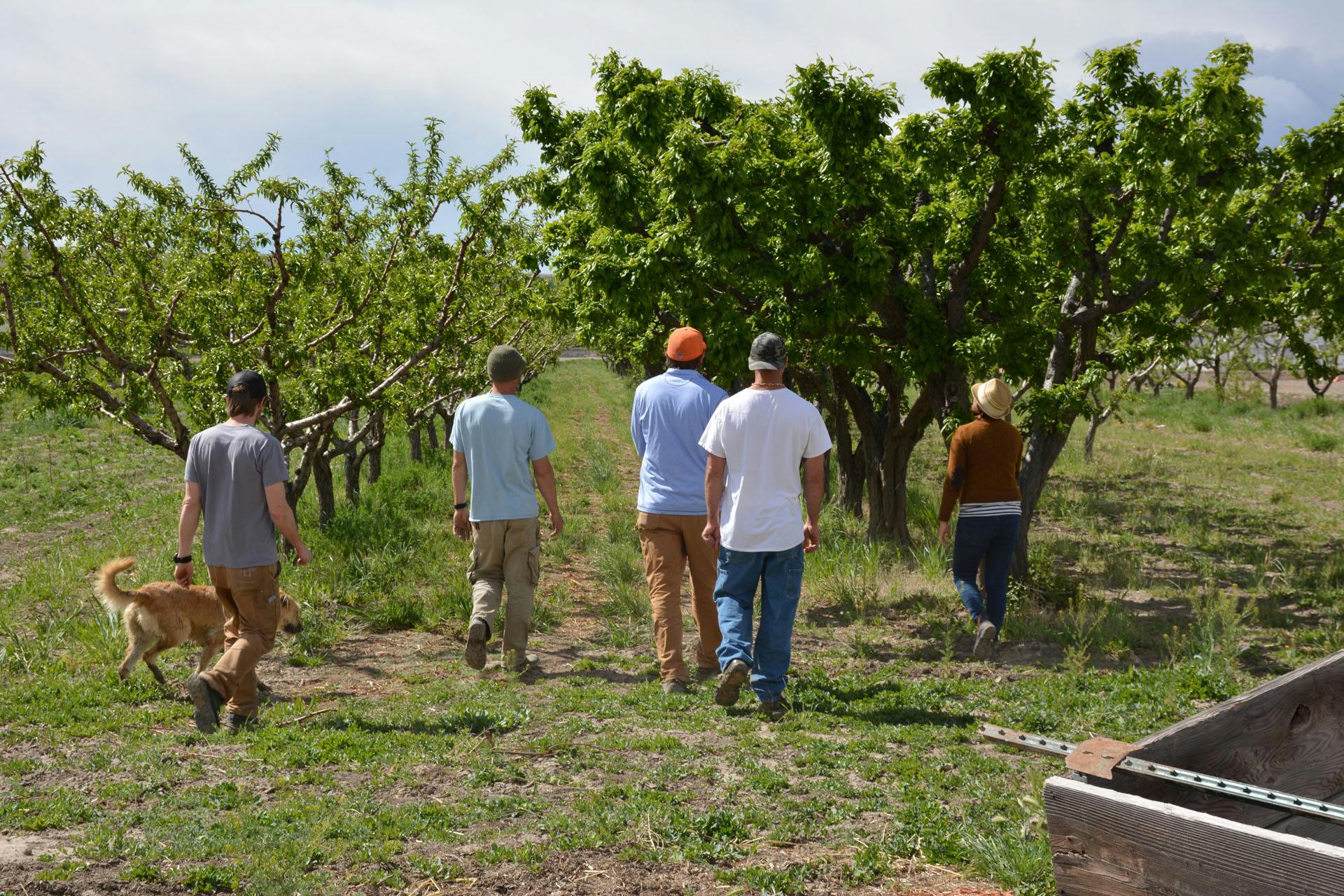
Palisade’s Dirty Little Secret
Even though Palisade peaches keep the tractors running and tourists flocking, ask almost any grower in Palisade and they’ll tell you they actually prefer nectarines! Nectarines have a higher sugar content and in my opinion, a more intense flavor profile compared to peaches.
Nectarines begin to ripen later here in Colorado compared to peaches, so we have a very limited time to use them. In 2017, we used over 5,000 pounds of organic nectarines, almost all of which were picked in a 3-week window. Many of our growers are young business owners like us. They see our growth and desire to grow with us. They are actually planting more nectarine trees just for us!
Our Nectarine Beers
Once we receive any stone fruit, we allow it to ripen onsite to its fullest flavor and juiciness. Just like we allow the barrels to tell us what to do, we let the fruit tell us when it’s ready for processing and refermentation. All we do to nectarines before putting them on beer is to quarter them and remove the pit. This labor-intensive process takes a long time, especially when you have thousands of pounds that need to be processed that day.
I still cringe thinking about a Thursday last fall when the Broncos were playing that night. We got in early that morning to get a bottling run going, and were really hoping that the nectarines wouldn’t be ready yet. Sure enough, a couple thousand pounds were ready and needed to be processed that day. Luckily we had enough help to get all the nectarines in tanks and rack the beer before kick off. It was quite the day. The Broncos lost.
We make several beers with nectarines. Nectarine Fruit Stand is Saison aged on nectarines at around 2 pounds per gallon. The Casey Family Preserve series is a double version of Fruit Stand, using at least 4 pounds per gallon in those blends. We added nectarines to East Bank, our honey farmhouse ale. The beer Excessive Recessive used peaches and nectarines together. In 2018, we look forward to trying more base beers with nectarines and other stone fruits such as apricots.
In 2016, we made our first dry hopped nectarine beer. Eric, our Cellar Manager, had a great idea to blend the juicy flavors of the nectarines with big tropical hops like Nelson Sauvin, Galaxy and Mosaic. Due to this flavor success, we’ve experimented with dry hopping other fruit beers as well, but that’s another post all in itself.
—
Troy Casey



